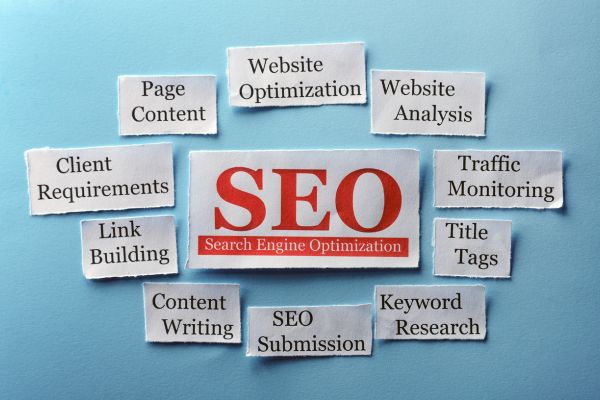What are Semantic Keywords? A Detailed Guide in Simple English

In search engine optimization, the term “semantic keywords” has become increasingly significant. With constant updates in algorithms, search engines like Google have evolved from merely matching exact keywords to understanding the context and intent behind search queries. This shift is where semantic keywords come into play. But what exactly are semantic keywords, and why are they important? This article will explain everything you need to know about semantic keywords in plain, straightforward English.
What are Semantic Keywords?
Semantic keywords are words or phrases related to the main keyword in meaning and context. They are not just synonyms or alternative words but also terms that help search engines understand the intent behind a search query and provide more relevant results.
For example, if your main keyword is “coffee shop,” semantic keywords might include:
- Coffee beans
- Espresso
- Café near me
- Morning coffee
- Best places to work with coffee
These related terms provide additional context, allowing search engines to comprehend not just the keyword but the broader topic. This helps users find the most relevant and valuable content for their queries.
How Are Semantic Keywords Different from Traditional Keywords?
Traditional keywords refer to exact-match phrases that a search engine would use to display results. For instance, if someone searched for “cheap laptops,” the search engine would look for pages that contained that exact phrase. However, the way people search has evolved. With the rise of voice search and conversational queries, users now ask questions like, “Where can I find affordable laptops?”
Semantic keywords accommodate this shift by looking beyond exact matches. They consider related terms and phrases, enabling search engines to understand the meaning behind queries rather than just the literal words.
The Role of Semantic Search in SEO
The rise of semantic search has transformed how content creators approach SEO. Semantic search focuses on delivering results based on context, searcher intent, and the relationships between words. Google’s algorithms, such as Hummingbird and BERT, emphasise the importance of semantic analysis.
Here’s how semantic search works:
- Context Over Keywords: Instead of matching exact words, search engines evaluate the entire query’s context.
- User Intent: What is the user trying to achieve? Are they looking for information, a product, or a service?
- Relevance: Results are ranked based on how well they answer the query, even if the exact keyword is not present.
Semantic keywords play a crucial role here because they help search engines decipher the overall meaning of a webpage rather than relying solely on exact keywords.
Why Are Semantic Keywords Important?
Semantic keywords have become essential in modern SEO strategies for several reasons:
1. Improved Search Engine Understanding
Search engines like Google use artificial intelligence (AI) to understand the relationships between words. Semantic keywords give search engines a clearer picture of your content’s topic, improving its chances of ranking for relevant queries.
2. Better User Experience
Content enriched with semantic keywords is more comprehensive and engaging. It answers a broader range of user questions, keeping visitors on your page longer and reducing bounce rates.
3. Higher Rankings
Since semantic keywords focus on context and intent, your content is more likely to rank for long-tail queries and related searches, boosting overall visibility.
4. Future-Proofing Your SEO
Search engines will continue to prioritise context and intent. By incorporating semantic keywords into your strategy, you ensure your content remains relevant and effective even as algorithms evolve.
Examples of Semantic Keywords in Action
Let’s break it down with a practical example. Suppose you’re writing an article about “healthy eating.” Instead of repeatedly using the exact phrase, you can include semantic keywords like:
- Balanced diet
- Nutritional meals
- Weight management tips
- Superfoods
- Health benefits of vegetables
These keywords provide more depth and help search engines understand the broader topic of your article, increasing its chances of ranking for various related searches.
How to Find Semantic Keywords?
Simply identifying semantic keywords isn’t enough—you need to use them effectively within your content to achieve the best results. Here are some practical tips for optimising your content with semantic keywords:
1. Integrate Naturally
Semantic keywords should be seamlessly woven into your text without disrupting readability. Avoid keyword stuffing, as it can negatively impact the user experience and your search engine rankings. Write naturally, keeping your audience in mind, and the semantic keywords will fit organically.
2. Use in Headings and Subheadings
Including semantic keywords in headings (H2, H3) helps structure your content better. It also signals their importance to search engines, making it easier for algorithms to understand the main topics covered in your content.
3. Include in Meta Descriptions
Meta descriptions provide a brief summary of your content, which appears in search results. Incorporating semantic keywords in this space enhances your content’s context and increases the likelihood of users clicking through to your website.
4. Write for Topics, Not Keywords
Rather than obsessing over individual keywords, create content that comprehensively covers the topic. Semantic keywords will naturally appear when you provide valuable, well-rounded information, making your content more relevant and useful to readers.
5. Optimise Alt Text and URLs
Adding semantic keywords to image alt text improves accessibility and helps search engines understand the visual elements of your content. Similarly, including them in URLs provides additional context and can contribute to better rankings.
What are the Benefits of Using Semantic Keywords
Incorporating semantic keywords offers several benefits:
- Higher Content Relevance Your content aligns more closely with user intent, increasing its relevance and usefulness.
- Broader Audience Reach Semantic keywords help your content rank for multiple related queries, expanding your audience.
- Stronger Authority Well-structured content with semantic keywords positions you as an authority on the topic.
- Better Engagement Comprehensive content keeps readers engaged, boosting dwell time and reducing bounce rates.
Challenges of Using Semantic Keywords
While semantic keywords offer numerous advantages, there are challenges to consider:
- Over-Optimisation Overusing semantic keywords can lead to keyword stuffing, which may harm your SEO rankings.
- Time-Consuming Researching and integrating semantic keywords requires extra effort and time compared to traditional keyword strategies.
- Dynamic Search Trends User intent and search behaviour can change over time, requiring you to regularly update your content.
Common Myths About Semantic Keywords
There are some misconceptions about semantic keywords that need clarification:
- Myth: Exact Keywords Are No Longer Important Fact: Exact keywords still matter, but they should be complemented by semantic keywords for a well-rounded strategy.
- Myth: Semantic Keywords Are Just Synonyms Fact: While synonyms are part of semantic keywords, they also include related terms and concepts.
- Myth: Semantic Keywords Guarantee Rankings Fact: Semantic keywords improve relevance but are just one piece of the SEO puzzle. Quality content, backlinks, and user experience also play critical roles.
Conclusion: The Future of SEO is Semantic
Semantic keywords have revolutionised how we approach SEO. By focusing on the context and intent behind search queries, they allow you to create content that resonates with both users and search engines. Incorporating semantic keywords into your strategy will not only improve your rankings but also enhance your content’s quality and relevance.
So, next time you’re crafting content, remember: think beyond exact keywords. Dive into the broader meaning, understand the intent, and let semantic keywords guide your way to SEO success.
Calling all Marketers!
🔴 Are you tired of searching for the perfect job?
Whether you're into content writing, SEO, social media, graphic design, or video editing—full-time, freelance, remote, or onsite—we've got your back!
👉 We post over 30 job opportunities every single day. Yes, every day (all verified).
Join the most reliable and fastest-growing community out there! ❤️
And guess what? It’s FREE 🤑
✅ Join our WhatsApp Group (Click Here) and Telegram Channel (Click Here) today for instant updates.






